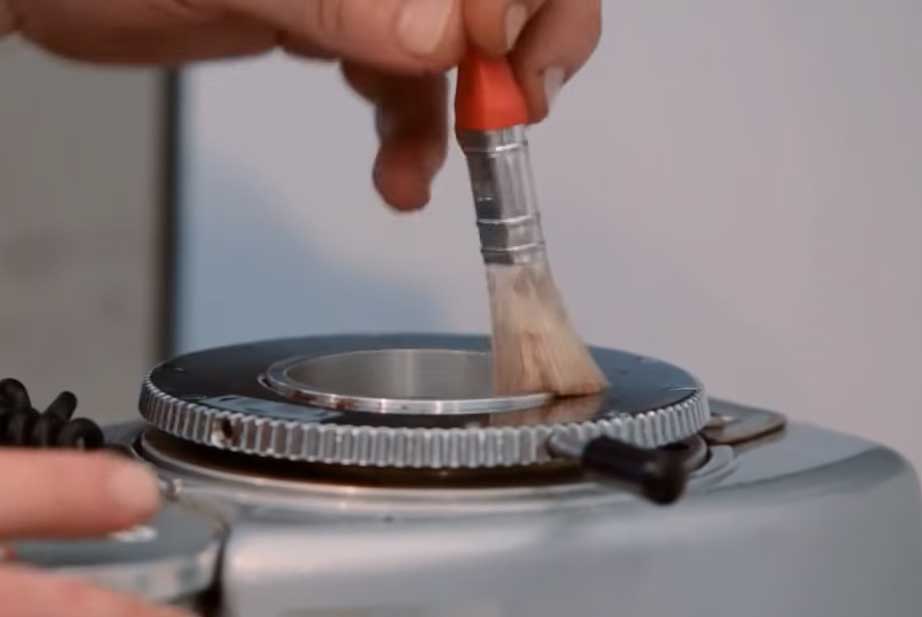When it comes to grinding your favorite herbs and spices, a clean grinder is essential for both optimal performance and flavor preservation. While isopropyl alcohol is a common choice for cleaning grinders, it’s not always the most readily available or desirable option. This comprehensive guide will delve into the world of grinder cleaning, providing you with effective and readily accessible alternatives to isopropyl alcohol.

Image: www.brewcoffeehome.com
Why Clean Your Grinder?
A well-maintained grinder not only ensures better grinding consistency but also prevents the accumulation of undesirable residues, which can impact the flavor and aroma of your herbs. Over time, grinder chambers and teeth can become clogged with herb particles, resin, and other debris, reducing grinding efficiency and flavor profiles. Regular cleaning is crucial to maintain optimal performance and hygiene.
Effective Isopropyl Alcohol Alternatives
While isopropyl alcohol is a powerful cleaning agent, it’s not always the most practical or accessible option. Here are some effective and readily available alternatives:
1. Hot Water and Dish Soap:
This is a straightforward yet effective method that utilizes the grease-cutting properties of dish soap. Simply soak the grinder in hot, soapy water for several minutes, then use a brush to dislodge any debris. Rinse thoroughly with clean water and dry completely.

Image: dailykitchenlife.com
2. Lemon Juice and Salt:
The acidity of lemon juice and the abrasive nature of salt combine to create a potent cleaning solution. Sprinkle salt into the grinder and squeeze in some lemon juice, then use a brush to scrub the surfaces. Rinse with water and dry thoroughly.
3. White Vinegar:
White vinegar is renowned for its cleaning and deodorizing abilities. Disassemble the grinder and soak the parts in white vinegar for 30 minutes. Brush off any remaining debris and rinse with clean water. Dry thoroughly before reassembling.
4. Baking Soda:
Baking soda is a natural abrasive that can effectively remove stubborn residues. Sprinkle baking soda into the grinder and let it sit for several hours or overnight. Brush off the baking soda and rinse thoroughly with clean water. Dry completely.
5. Commercial Grinder Cleaner:
For a more specialized approach, consider using a commercial grinder cleaner specifically designed for this purpose. These cleaners are often formulated to efficiently dissolve and remove resinous buildup. Follow the manufacturer’s instructions for safe and effective use.
Additional Cleaning Tips:
- Before cleaning, empty the grinder of all herb residues.
- Use a soft-bristled brush or cotton swabs to avoid scratching the grinder surfaces.
- Ensure the grinder is completely dry before reassembling to prevent rust and mold growth.
- Clean your grinder regularly, ideally after every few uses, or as needed.
- For heavily clogged grinders, consider soaking the parts in a cleaning solution for an extended period.
- If possible, avoid using harsh chemicals or abrasive cleaners, as these may damage the grinder’s surfaces.
How To Clean Grinder Without Isopropyl
Conclusion
Maintaining a clean grinder is essential for optimal performance and flavor preservation. While isopropyl alcohol is a common cleaning choice, several effective alternatives are readily available. By following the methods outlined in this guide, you can effortlessly clean your grinder without sacrificing effectiveness or readily accessible materials. Remember, a clean grinder makes all the difference in your grinding experience, enhancing both flavor and efficiency.